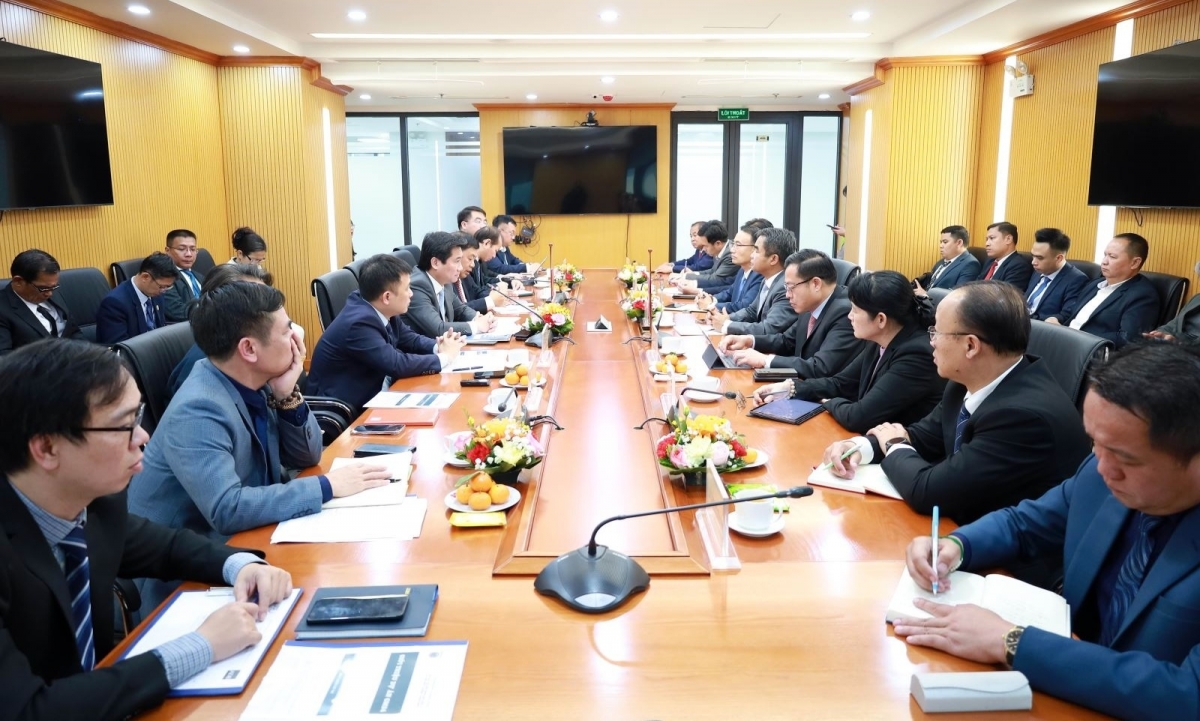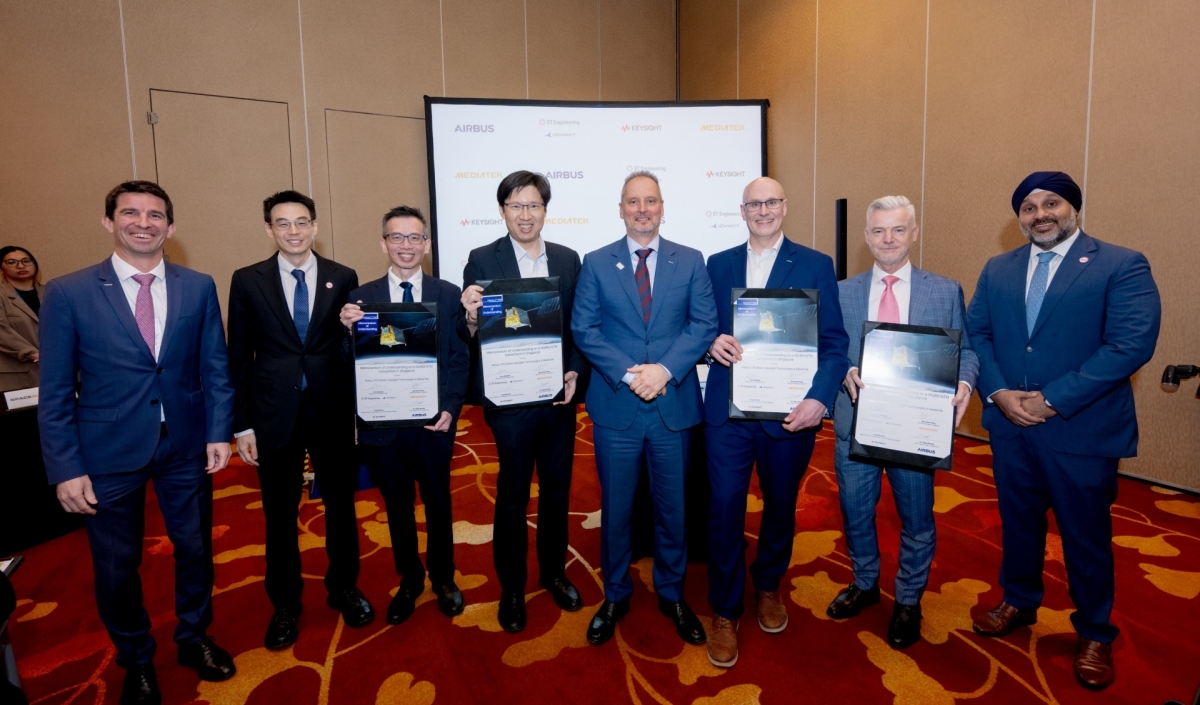INTERNATIONAL INVESTMENT
AND PORTAL
On October 16, UOB (United Overseas Bank) hosted the Gateway to ASEAN Conference at Marina Bay Sands in Singapore. In its fourth year, the annual gathering of regional business leaders brought together more than 1,000 attendees in-person and online.
This year’s conference addressed the strategic role that ASEAN plays as companies reconfigure their supply chains in response to global trade tensions.
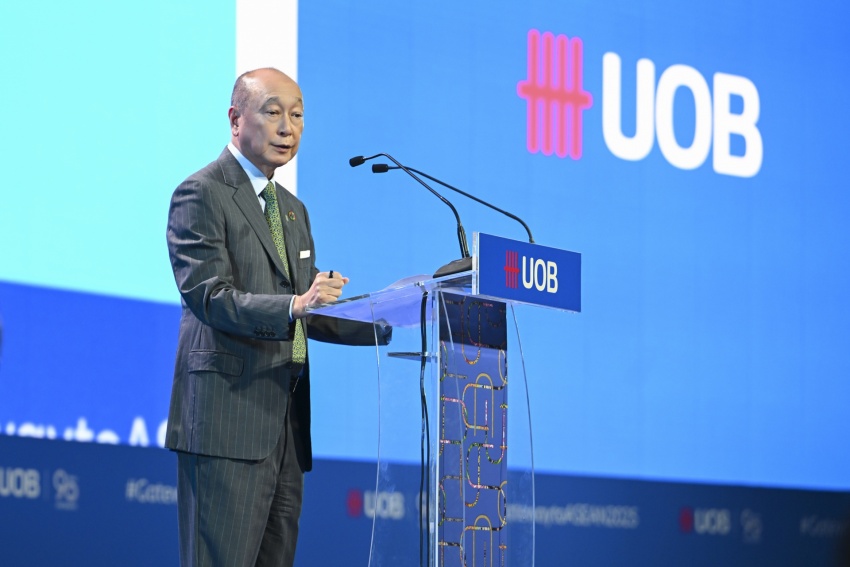 Wee Ee Cheong, deputy chairman and CEO of UOB
Wee Ee Cheong, deputy chairman and CEO of UOB
Wee Ee Cheong, deputy chairman and CEO of UOB, said that ASEAN is one of the world’s fastest growing economies, powered by a large and young population and a rising middle class. It is being driven by consumer demand, the rise of the digital and green economies, and strategic connectivity to key global markets, supported by free trade agreements.
“In a multipolar world, ASEAN is more relevant than ever. Supply chain rewiring is creating new opportunities. Investments are flowing from the rest of the world to ASEAN for production and market access,” he said. “Geopolitical tensions and tariffs are pushing ASEAN towards greater integration. The momentum is encouraging.”
Recent moves by ASEAN governments to accelerate market integration include strengthening the ASEAN Trade in Goods Agreement (to boost intra-ASEAN trade flows from the current levels of under 30 per cent); advancing the Digital Economic Framework Agreement to unlock the region’s digital economy potential, valued at $2 trillion by 2030; and deepening energy collaboration through the ASEAN Power Grid. For example, Singapore plans to import 6GW of renewable energy from neighbouring countries.
“We need to continue to lower non-tariff barriers to improve the ease of doing business and make the region more competitive and attractive for investment. We need pro-innovation policies to support emerging ASEAN enterprises,” he emphasised.
According to UNCTAD's World Investment Report, ASEAN remains a top foreign direct investment (FDI) destination with over $225 billion in investments in 2024. Investments are projected to rise to $370 billion by 2030. China-ASEAN and intra-ASEAN trade exceeds $1.5 trillion, and is growing, a trend that is expected to continue.
Beyond manufacturing, ASEAN is also emerging as a storage, fulfilment, and distribution powerhouse.
Regional hubs are drawing significant investor interest. For example, Thailand’s Eastern Economic Corridor (EEC), a special economic zone in eastern Thailand, and Johor-Singapore Special Economic Zone are magnets for high-end manufacturing and logistics investments.
Sector clusters are taking shape. Electronics and EV makers are concentrating in Thailand, while Malaysia is becoming the centre for semiconductors assembly, testing, and packaging.
Singapore continues to attract big-ticket investments due to its stability and probusiness policies. In recent years, Chinese companies have been increasing their investments in ASEAN to diversify their production, sourcing, and markets.
“No doubt, competition from Chinese companies will heighten. But we see a winning formula: ASEAN companies must partner smartly to complement strengths and thrive in this diverse market,” the CEO said.
He said that many businesses want to be part of the growing ASEAN story. However, doing business in ASEAN can also be complex, with its diverse languages, cultures, and regulations.
It requires local insight and trusted partnerships. UOB has an edge, with a network of FDI advisory centres in key cities, and strategic MoUs with government agencies and industry associations across the region.
“We are well-placed to support businesses in entering new markets and navigating ground complexities,” Cheong said.
In the past five years, UOB has doubled down on efforts to bring in new FDI that meet strategic priorities of the region. The companies that UOB has supported have pledged to invest over $38.6 billion, which will translate into creating almost 300,000 job opportunities in the various markets.
“Beyond that, we are working with strategic partners to enable more local small- and medium-sized enterprises to be part of the supply chain, which will create more job opportunities locally,” he said.
For example, as an early mover in the Johor-Singapore Special Economic Zone, we have facilitated companies to invest S$3.3 billion in the SEZ since 2024, he said.
UOB has achieved strong growth in its cross-border business across ASEAN and Greater China as companies move supply chains to the region. As companies reconfigure their supply chains, UOB has seen increased demand for trade and Financial Supply Chain Management (FSCM) financing, digital payments and collections solutions.
To enhance supply chain connectivity and working capital efficiency, UOB has developed industry-leading solutions incorporating sector insights. Through a dedicated FSCM management team and streamlined credit onboarding, the bank is able to onboard suppliers at scale, including deep-tier suppliers beyond direct partners. With financing extended further into their ecosystems, corporates can benefit from improved business continuity and competitiveness.
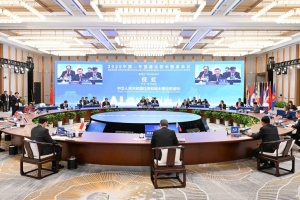 Vietnam proposes cooperation initiatives at China-ASEAN construction meeting
Vietnam proposes cooperation initiatives at China-ASEAN construction meeting
A delegation from Vietnam's Ministry of Construction (MoC) led by Deputy Minister Nguyen Tuong Van participated in the 2025 China-ASEAN Ministerial Roundtable on Construction in Guangxi province on September 15.
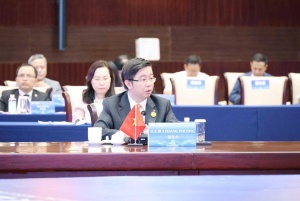 Vietnam attends China-ASEAN ministerial roundtable on AI
Vietnam attends China-ASEAN ministerial roundtable on AI
Vietnam is keen on expanding cooperation in training and developing AI talent, as well as promoting research and academic exchange between Vietnamese institutions and global partners.
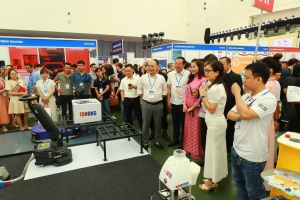 Vietnam’s supporting industries breaking barriers in ASEAN supply chains
Vietnam’s supporting industries breaking barriers in ASEAN supply chains
Global supply chain shifts have brought ASEAN into focus, but Vietnam's supporting industries must overcome structural weaknesses to rise above low-value subcontracting.






